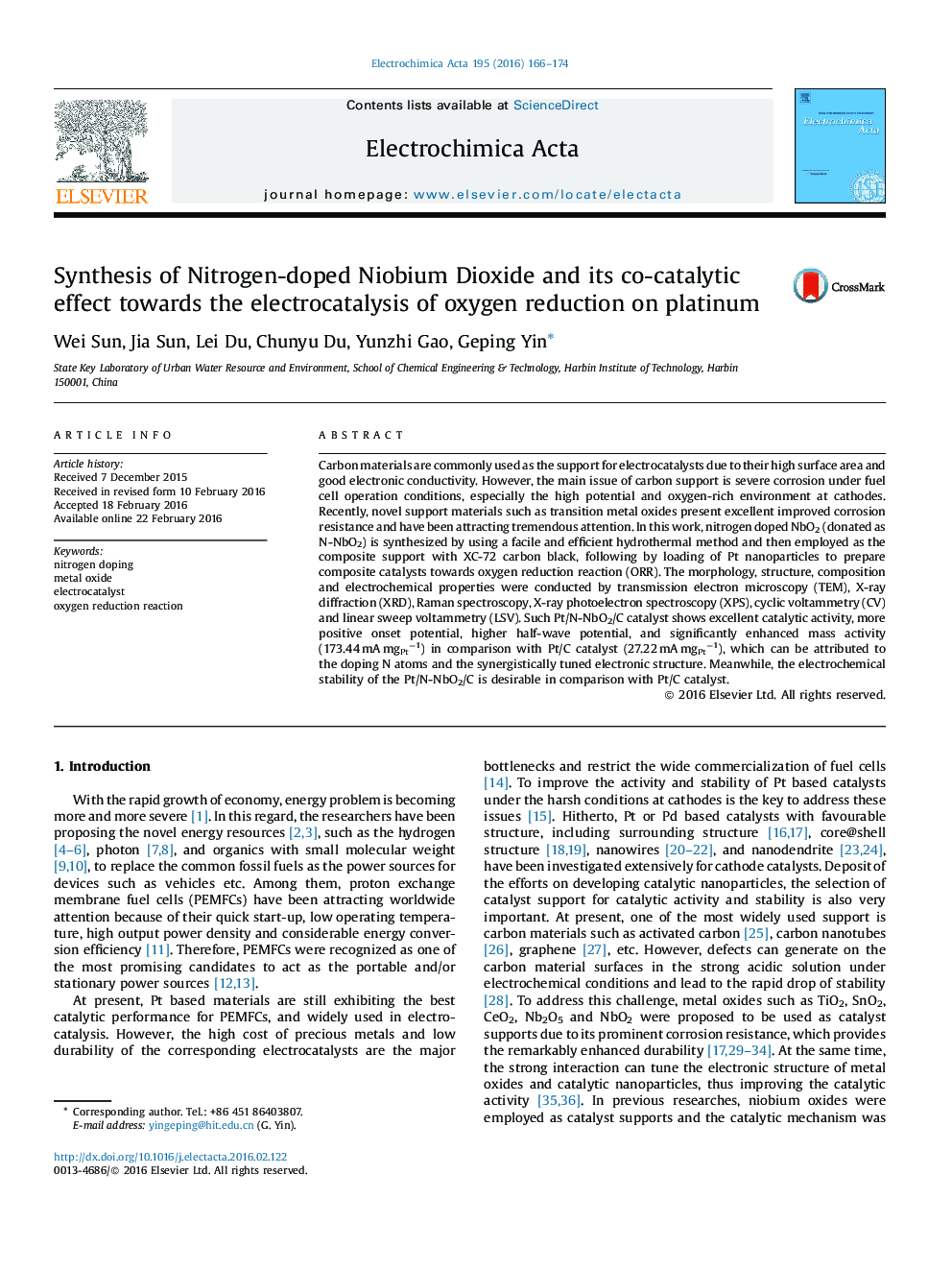| Article ID | Journal | Published Year | Pages | File Type |
|---|---|---|---|---|
| 6608418 | Electrochimica Acta | 2016 | 9 Pages |
Abstract
Carbon materials are commonly used as the support for electrocatalysts due to their high surface area and good electronic conductivity. However, the main issue of carbon support is severe corrosion under fuel cell operation conditions, especially the high potential and oxygen-rich environment at cathodes. Recently, novel support materials such as transition metal oxides present excellent improved corrosion resistance and have been attracting tremendous attention. In this work, nitrogen doped NbO2 (donated as N-NbO2) is synthesized by using a facile and efficient hydrothermal method and then employed as the composite support with XC-72 carbon black, following by loading of Pt nanoparticles to prepare composite catalysts towards oxygen reduction reaction (ORR). The morphology, structure, composition and electrochemical properties were conducted by transmission electron microscopy (TEM), X-ray diffraction (XRD), Raman spectroscopy, X-ray photoelectron spectroscopy (XPS), cyclic voltammetry (CV) and linear sweep voltammetry (LSV). Such Pt/N-NbO2/C catalyst shows excellent catalytic activity, more positive onset potential, higher half-wave potential, and significantly enhanced mass activity (173.44Â mAÂ mgPtâ1) in comparison with Pt/C catalyst (27.22Â mAÂ mgPtâ1), which can be attributed to the doping N atoms and the synergistically tuned electronic structure. Meanwhile, the electrochemical stability of the Pt/N-NbO2/C is desirable in comparison with Pt/C catalyst.
Related Topics
Physical Sciences and Engineering
Chemical Engineering
Chemical Engineering (General)
Authors
Wei Sun, Jia Sun, Lei Du, Chunyu Du, Yunzhi Gao, Geping Yin,
